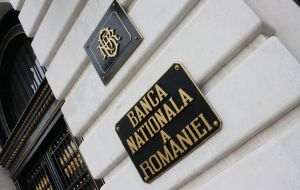(Interview with Mark Mobius, executive chairman of "Franklin Templeton")
Reporter: Mr. chairman, if, after the listing of the Proprietatea Fund, the price of the shares falls below 1 leu, this could prevent the Fund from serving the purpose for which it was created, namely to provide compensation for former asset owners, since they received shares with a face value of 1 leu. Do you not see this as an issue related to the listing of the Fund?
Mark Mobius: Yes, it is a problem, you are right, but it is an issue that the Government must settle with the shareholders of the Fund. In fact, the government told the shareholders that each share they received is worth 1 leu, but, after the listing, the shareholders may find out that it is not necessarily so.
Reporter: Why would such a situation be the problem of the Government and of the shareholders? Shouldn"t the manager of the Fund, namely, "Franklin Templeton", share some of the responsibility in such a situation?
Mark Mobius: How can we be expected to be held responsible because of a Government that takes assets away from the Fund?
Reporter: What assets did the state take out from the Fund?
Mark Mobius: The money from "Romgaz" (ed. note: the 400 million lei that "Romgaz" would be required to donate to the state, according to the decision of the General Shareholder Assembly).
Reporter: "Franklin Templeton" protested against the donation of "Romgaz", but it did not protest when the Government decided to no longer transfer the funds collected from Romania"s claims towards its foreign debtors to the Fund ...
Mark Mobius: When the donation of "Romgaz" was made, the assets of "Romgaz" were part of the Proprietatea Fund. We have received a mandate to also manage the assets of "Romgaz" which were part of the fund"s portfolio. Concerning the money from Romania"s foreign claims, we didn"t have them under management.
Reporter: In its role as manager of the Fund, "Franklin Templeton" did not oppose the decision of the government not to include the money recovered from claims against Romania"s foreign debtors in the Fund"s accounts.
Mark Mobius: That money was not taken from the Fund, it did not belong to it in the first place.
Reporter: Last year you met Sebastian Vlădescu, and other members of his team. Did you then lay the foundation for further cooperation with the Romanian government concerning an issue of bonds?
Mark Mobius: The Romanian state, as you know, is planning to issue bonds on the foreign markets. We are buyers of these bonds. "Franklin Templeton" has several investment divisions, one of which, for instance, invests in government bonds of emerging markets. The divisions are independent from one another. The head of the emerging markets bond division does not have to listen to me if I make an investment recommendation. He may have bought Romanian bonds without me knowing about it, even though we are present in Romania, where we were awarded the contract for the management of the Proprietatea Fund.
Reporter: Are you aware, in your role of manager of the Fund, there is the potential for a flurry of lawsuits from former asset owners if the shares were to fall far below the face value, after the listing?
Mark Mobius: Depends on the market. You need to pay attention to this aspect, which is, in itself, very important. Our responsibility lies with the assets of the Fund. What the government gives to the Fund, or intends to give to it, is an aspect which concerns exclusively the government and the former asset owners.
Reporter: Thank you!























































